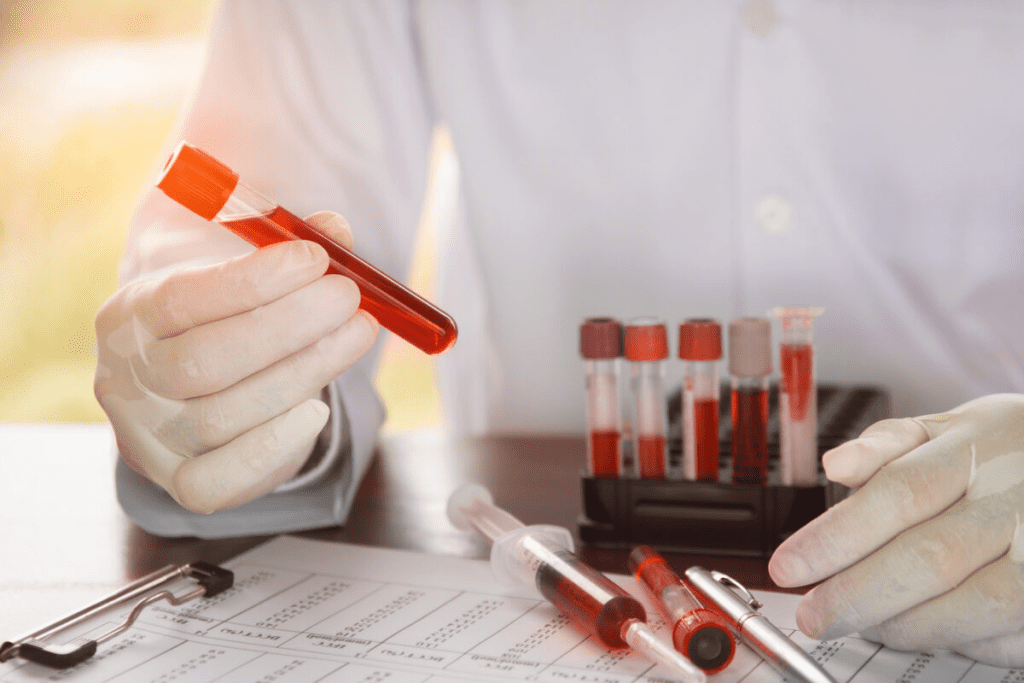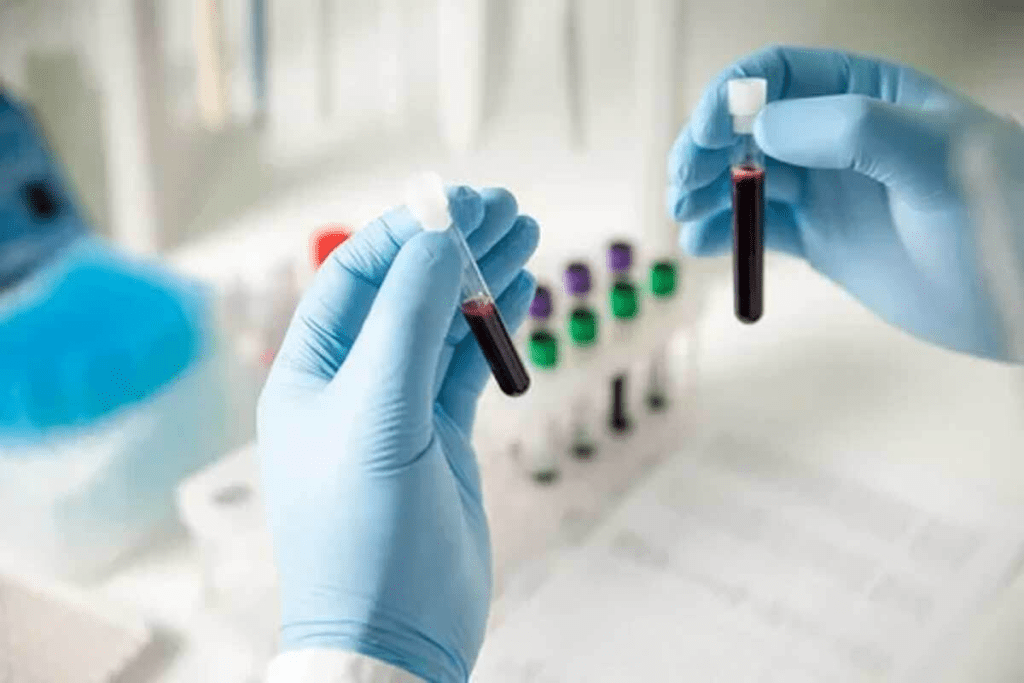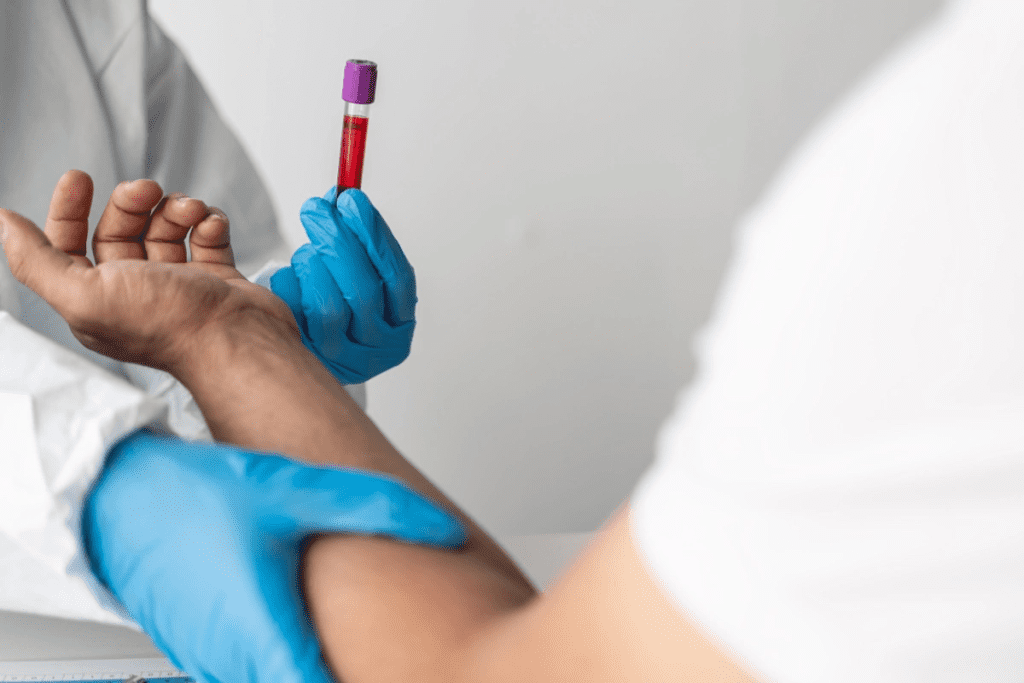Last Updated on November 14, 2025 by

Being referred to hematology can worry many patients. It makes them think about whether they have a serious issue like cancer.
At LivHospital, we get how scary these referrals can be. We’re here to offer top-notch healthcare and support. A blood doctor, or hematologist, deals with blood, bone marrow, and lymphatic system problems.
Knowing what hematology is and a hematologist’s role helps patients get the care they need fast. The American College of Physicians says hematologists treat blood disorders and cancers.
A hematology referral is a key step in diagnosing and treating blood-related disorders. It can be worrying to get such a referral. But it’s a big step towards getting the right care.

Hematology is the medical field that deals with blood disorders and blood-forming organs. Patients get referred to hematology for many reasons. This includes abnormal blood test results, symptoms of blood disorders, or conditions like anemia and blood clots.
Some common reasons for a hematology referral include:
A hematology referral means a patient’s primary care doctor or another specialist thinks a hematologist is needed. Hematologists are experts in treating complex blood conditions. They use advanced tests and treatments.
This referral is important because it means patients get specialized care. This care can lead to better diagnoses and treatment plans. By seeing a hematologist, patients get:
The US is expected to see a big increase in new cancer cases. Over 2 million cases are projected for 2025. This includes 66,890 leukemia and 89,070 lymphoma diagnoses. Hematology referrals are rising, mainly among adults over 65, who are more likely to get blood-related cancers.
The rising cancer cases show how important early diagnosis and specialist care are. Hematologists are key in managing blood cancers and disorders. This highlights the growing need for hematology services.

Hematologists are key in managing blood-related issues. They handle everything from simple disorders to complex cancers. At LivHospital, our hematologists offer detailed care for many blood disorders.
Non-cancerous blood disorders affect how blood works without being cancerous. Anemia specialists at LivHospital treat different types of anemia. This includes low red blood cell count or hemoglobin levels.
Other non-cancerous issues include bleeding and clotting disorders. These need special care and treatment.
Knowing what hematology is shows how important hematologists are. Hematology is about studying blood, its problems, and blood-making organs. Hematologists can handle many blood-related issues, not just cancer.
Abnormal blood test results often mean a visit to a hematologist. These can include odd white blood cell counts or low platelet counts. Our hematologists use the latest tools to find out why and how to treat it.
The definition of hematology includes diagnosing and treating blood disorders. By finding the root cause, hematologists can give focused care. This helps patients with complex blood issues get better.
At LivHospital, we focus on a full care plan for blood disorders. Our hematologists team up with others to give top-notch care. This care goes from the first diagnosis to ongoing treatment and check-ups.
Knowing what happens at a hematology appointment can make you feel less anxious. When you see a hematologist, you’re taking a big step towards finding and treating blood-related issues. We’ll walk you through what to expect, from the first meeting to planning your treatment.
Your first visit starts with a review of your medical history. Your hematologist will talk about your symptoms, past illnesses, and current medications. They’ll also look at your blood tests for any signs of problems. This helps them understand your health better.
Your hematologist might also ask about your family’s health history. Some blood disorders run in families.
To find out what’s wrong, your hematologist might order more diagnostic procedures. They might do special blood tests that go beyond the usual ones. These tests can spot issues like clotting problems or anemia.
In some cases, a bone marrow biopsy or other advanced tests might be needed. These help your hematologist create a good treatment plan for you.
After figuring out what’s wrong, your hematologist will make a treatment plan just for you. This might include medicine, lifestyle changes, or more medical steps. The aim is to manage your condition well and improve your life.
Regular follow-ups are key to your care. Your hematologist will check how you’re doing and adjust your treatment as needed. This ongoing care helps make sure you’re getting the best treatment.
Hematologists play a key role in treating blood-related diseases. They are medical experts who deal with blood disorders, including anemia and blood cancers. Their work is vital in modern healthcare.
Hematologists get a lot of training to become experts. They start with a residency in internal medicine and then a fellowship in hematology. This training helps them handle complex blood conditions well.
Their training includes:
The need for hematologists is growing fast. This is because more people are getting blood cancers and disorders, mainly as they get older. The aging population means more cases of anemia, leukemia, and lymphoma, making hematologists more important.
Key factors driving the demand for hematologists include:
At LivHospital, our hematologists focus on quality care for each patient. We know how important specialized care is for blood disorders. We aim to provide treatment plans that meet each patient’s unique needs.
Getting a referral to a hematologist can be scary, but knowing what to expect helps. Hematology is a part of medicine that focuses on blood disorders. A hematologist, or blood doctor, is a specialist with lots of training to help with blood issues.
Understanding hematology and the role of a hematologist makes patients feel more confident. At LivHospital, we aim to give our patients top-notch care. Our team of skilled hematologists creates treatment plans that fit each patient’s needs.
Handling a hematology referral means having the right information and support. Seeing a qualified hematologist ensures you get the best care. We’re here to help you, from your first visit to ongoing care, making sure you get the best treatment for your blood conditions.
Hematology is the study of blood and blood-related disorders. It includes diseases of the blood and organs that make blood. Hematologists diagnose and treat these conditions, both cancerous and non-cancerous.
You might see a hematologist if your blood tests show something odd or if you have symptoms of blood disorders. They help patients with anemia, hemophilia, clotting issues, and blood cancers.
At your first visit, your hematologist will look at your medical history and talk about your symptoms. They’ll also check your blood tests. They might do more tests to figure out what’s wrong and plan your treatment.
Hematologists deal with many blood issues, like anemia, hemophilia, and blood cancers. They offer specialized care for these complex conditions.
Hematologists get a lot of training. They start with an internal medicine residency and then do fellowships in hematology. This prepares them to handle complex blood conditions and give top-notch care.
No, seeing a hematologist doesn’t mean you have cancer. They treat many blood conditions, not just cancer. It’s a step to understand and manage your health, and a diagnosis will come after tests and evaluation.
Your hematologist will make a treatment plan just for you. It might include medicine, lifestyle changes, or more medical steps. Regular check-ups are key to seeing how you’re doing and adjusting the plan if needed.
Hematologists are key in healthcare today. They bring special knowledge and skills to treating blood disorders. As more people get older and blood cancers rise, we need more hematologists.
Subscribe to our e-newsletter to stay informed about the latest innovations in the world of health and exclusive offers!